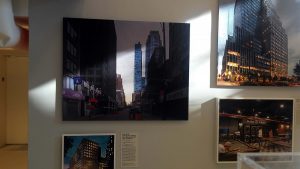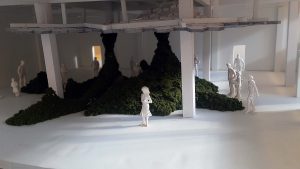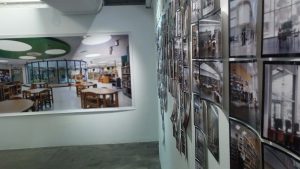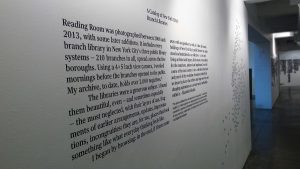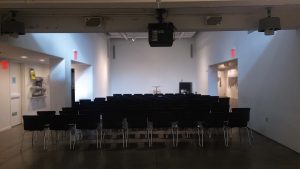The Center For Architecture, otherwise known as the CFA is New York City’s chapter representing the AIA (American Institute of Architects). This chapter dates all the way back to when the AIA was first founded in 1857. It started with a small group of thirteen architects, creating a professional quota of what every architect should implement in his/her work. Before this means of declaration, anyone could proclaim themselves architects without “proper” training or schooling since there weren’t any schools for architecture or official licensing that architects face today. Like the Founding Fathers, these architects established standards and their own set of laws creating a documented beginning to a culturally dense practice of architecture. The declaration that they made changed over the years as architectural natural selection took place. Actually, just two years after they formed they added sixteen more architects to their group ultimately adding the new incite to the decree; one of the architects being Calvert Vaux, as I mentioned him in a past post.
The very first president of the AIA was Richard Upjohn, an England born architect known for Gothic Revival style and cathedrals. His son would later be a partner in the group as well continuing his legacy. The main AIA headquarters was later stationed at The Octagon House, Washington D.C. in 1898. Now the president is Elizabeth Chu Richter, with Robert Ivy as acting CEO.
New York City’s chapter of the AIA (CFA) is now in Greenwich Village on West 3rd street. Each chapter’s main focus is on public areas and community outreach. The architects find new and improved ways to enrich the community. By going to the CFA you can be able to see history of NYC and the plans to improve it while keeping the culture. Everything that is shown in the exhibit is new or upcoming projects, the building filled with gallery style renderings and photographs.
This exhibit is not only for architects since it is open to the public and costs nothing to visit (some of their programs/conferences that are held can cost money; some are cheaper than others, from 10$+). Just as an art gallery, I feel that anyone could enjoy the Center since it shows new projects that could potentially feel personal as they may be close to where you work, study, or live. It’s very interesting to see what’s going on in your neighborhood almost like having a sneak peak into the future.
Plan your visit to the Center For Architecture and maybe catch a function that normally is scheduled for after or before work hours.
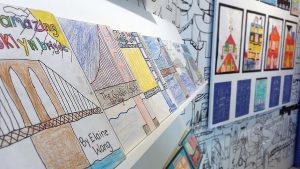
Inside a displayed corner is a constantly changing sub-exhibition. The most current showcase is of kid’s architectural work.

